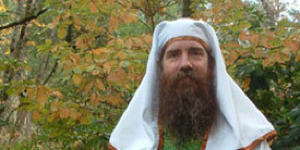Welcome to DU!
The truly grassroots left-of-center political community where regular people, not algorithms, drive the discussions and set the standards.
Join the community:
Create a free account
Support DU (and get rid of ads!):
Become a Star Member
Latest Breaking News
General Discussion
The DU Lounge
All Forums
Issue Forums
Culture Forums
Alliance Forums
Region Forums
Support Forums
Help & Search
Dark Age America: Climate | John Michael Greer

July 30, 2014 (Archdruid Report) -- Over the next year or so, as I’ve mentioned in recent posts, I plan on tracing out as much as possible of what can be known or reasonably guessed about the next 500 years or so of North American history -- the period of the decline and fall of the civilization that now occupies that continent, the dark age in which that familiar trajectory ends, and the first stirrings of the successor societies that will rise out of its ruins.
That’s a challenging project, arguably more so than anything else I’ve attempted here, and it also involves some presuppositions that may be unfamiliar even to my regular readers.
To begin with, I’m approaching history -- the history of the past as well as of the future -- from a strictly ecological standpoint. I’d like to propose, in fact, that history might best be understood as the ecology of human communities, traced along the dimension of time. Like every other ecological process, in other words, it’s shaped partly by the pressures of the environment and partly by the way its own subsystems interact with one another, and with the subsystems of the other ecologies around it. That’s not a common view; most historical writing these days puts human beings at the center of the picture, with the natural world as a supposedly static background, while a minority view goes to the other extreme and fixates on natural catastrophes as the sole cause of this or that major historical change.
Neither of these approaches seem particularly useful to me. As our civilization has been trying its level best not to learn for the last couple of centuries, and thus will be learning the hard way in the years immediately ahead, the natural world is not a static background. It’s an active and constantly changing presence that responds in complex ways to human actions. Human societies, in turn, are equally active and equally changeable, and respond in complex ways to nature’s actions. The strange loops generated by a dance of action and interaction along these lines are difficult to track by the usual tools of linear thinking, but they’re the bread and butter of systems theory, and also of all those branches of ecology that treat the ecosystem rather than the individual organism as the basic unit.
more
http://worldnewstrust.com/dark-age-america-climate-john-michael-greer
InfoView thread info, including edit history
TrashPut this thread in your Trash Can (My DU » Trash Can)
BookmarkAdd this thread to your Bookmarks (My DU » Bookmarks)
2 replies, 938 views
ShareGet links to this post and/or share on social media
AlertAlert this post for a rule violation
PowersThere are no powers you can use on this post
EditCannot edit other people's posts
ReplyReply to this post
EditCannot edit other people's posts
Rec (1)
ReplyReply to this post
2 replies
 = new reply since forum marked as read
Highlight:
NoneDon't highlight anything
5 newestHighlight 5 most recent replies
= new reply since forum marked as read
Highlight:
NoneDon't highlight anything
5 newestHighlight 5 most recent replies
Dark Age America: Climate | John Michael Greer (Original Post)
Tace
Aug 2014
OP
Adam051188
(711 posts)1. such hyperbole
the only time you see claims quite this outlandish is when the ordained thieves realize that too many patsies have figured out their game and they need a distraction before the next game can be put in place.
![]() definitely food for thought.
definitely food for thought.
Thanks for posting.
Thoughtful stuff.